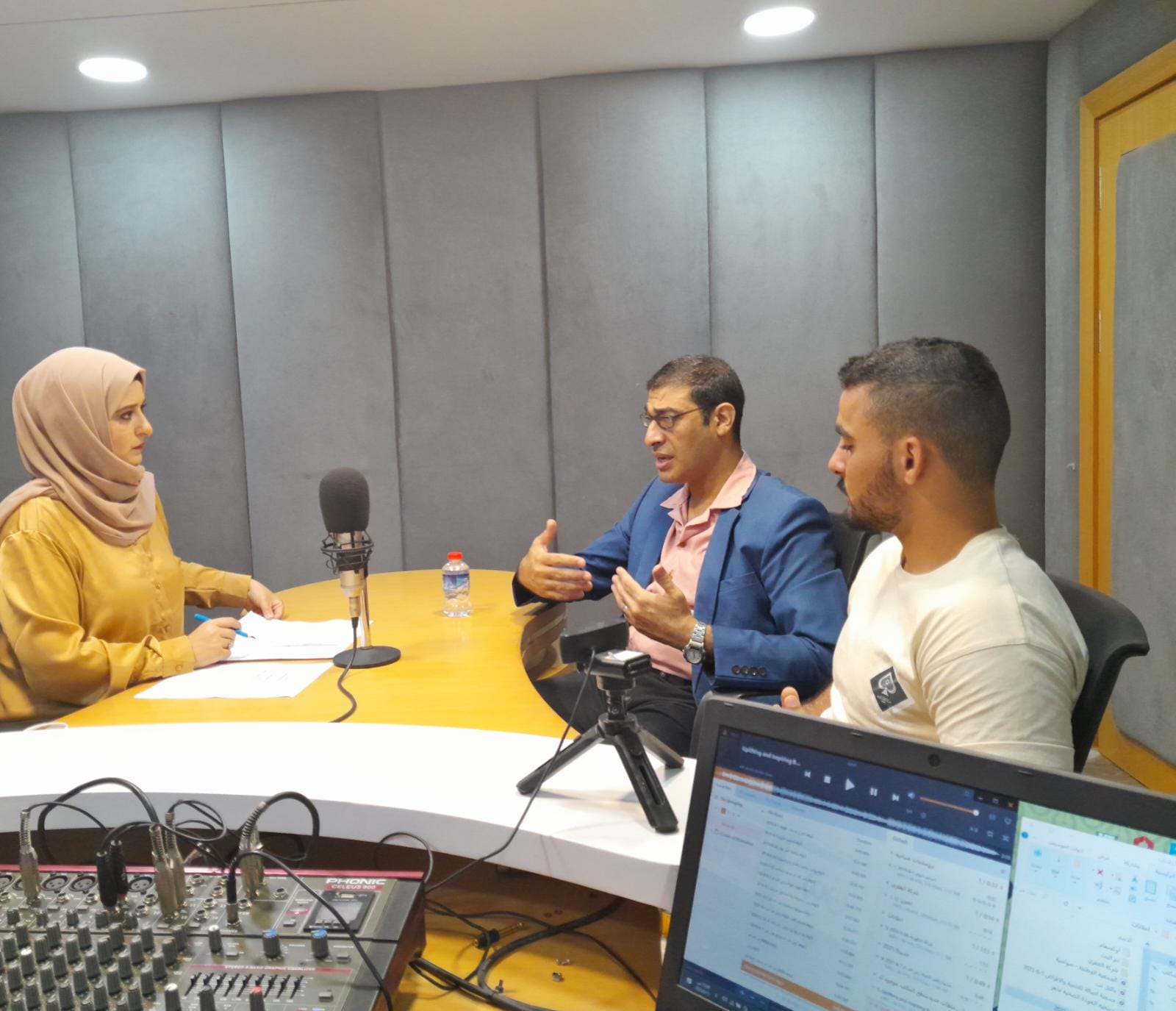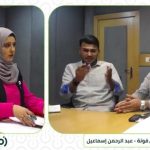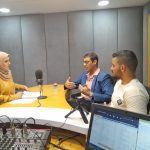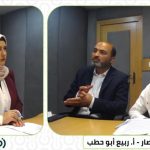PalThink for Strategic Studies continues its radio program “Youth Dialogue”, in which young people discuss different ideas and opinions through debates and dialogues, to expand mutual understanding on societal issues, especially youth ones, as part of the “Building Tomorrow’s Leaders for Palestine” project, in partnership with FXB.
Aired on Zaman FM radio station, the third episode of the programme, entitled “Hate Speech Among Youth”, hosted the youth activist Mustafa Akkad, an alumnus of the project and academic researcher in law, Dr. Muhammad Al-Tilbani.
Akkad started by talking about his experience in the debates organized by PalThink as part of the project, the tools they learned to use, and the goals of debating, most importantly accepting the other.
He also talked about the concept of hate speech, especially based on a political basis, and the role of community leaders and factions in spreading hate speech.
Akkad said that it is the responsibility of civil society institutions to curb hate speech and spread accepting the other instead, stressing that youth’s peaceful discourse among their peers has the greatest impact on overcoming the phenomenon of hate speech.
As for Al-Tilbani, he talked about the concept of hate speech among the Palestinians specifically after the Palestinian division, and stressed that political affiliation is a major cause of hate speech among young people.
He said that the Palestinian factions are the ones responsible for hate speech, and this requires them to take steps towards renouncing this behaviour and teaching accepting their affiliates to accept the other.
As for the fourth episode, which was titled “Student Council Elections in Universities,” it hosted the youth activist Abdul Rahman Ismail, and the former head of the student council at the Islamic University, Ezz Eldeen Quta.
Ismail talked about representation for university students and student council elections as a beginning for the practice of democracy among young people, and also about the goals of student councils.
Quta talked about the importance of holding student council elections in providing an appropriate democratic environment for students in the university, guaranteeing students’ rights and creating a free environment for students to practice their activities and develop their skills.
He also talked about the laws that regulate student council elections, the shifting in the needs of students, the fundamental variables, the tasks of the student councils, and the issues that could be among the tasks of the councils.
The two guests also talked about the impact of division and depriving students of elections and obstructing any democratic process, stressing that harmony between young people facilitates the elections process, while political decisions are the biggest obstacle to holding those elections.
As for the fifth episode, titled “Youth Movements are the Most Effective Way for Youth to Express Their Issues,” it hosted youth activist Nour Nassar and writer and political researcher Rabie Abu Hatab, who talked about accepting others and the importance of programs that promote dialogue culture.
He also talked about youth movements and the extent of the role of youth in resolving their issues, stressing that they have the greatest role in influencing all levels and that Palestinian youth are able to overcome obstacles.
Nassar concluded his words taking about defining the concept of youth and youth movement, the goals for which youth movements are formed, the opportunities that must be provided to young people to express their issues, and the extent of the influence of youth movements in resolving crises and bringing about political and societal change.




